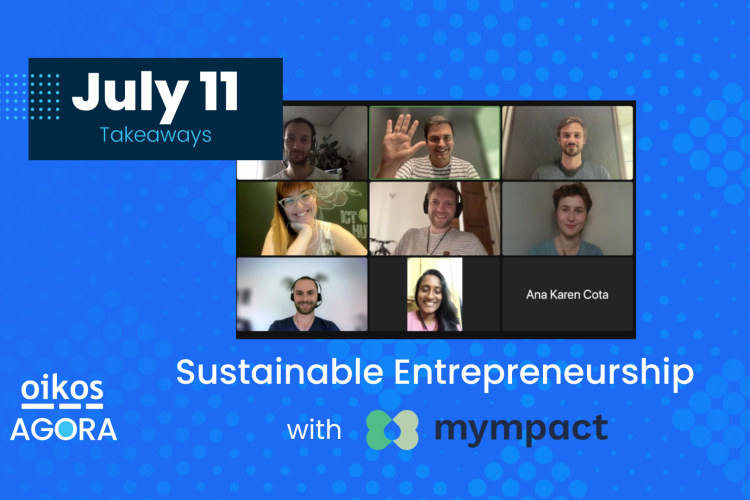On July 11, we were joined by Christian from mympact for our oikos AGORA who held an engaging presentation about current developments in the (DACH) climate tech industry. After...
Abstract Social entrepreneur Chinyere Nnadi (Nnadi), Co-founder & CEO of Sustainability International (SI), had started his non-profit organisation to provide innovative solutions using technology to alleviate poverty in Africa....
Abstract This case presents the startup and growth of Preserve, a sustainability-driven business and B Corp, in the circular economy. The company has grown over the years as a...
ABSTRACT This case discusses how social innovator Nand Kishore Chaudhary (NKC) revolutionized the concept of the traditional carpet industry in India and empowered 40,000+ rural artisans by providing them...
As part of oikos Green Week 2018, join our workshop in collaboration with Green Tech Challenge and learn about entrepreneurship. Get experience on real life challenges start-ups face when...
Abstract Timbaktu Collective is a non-profit organization in southern India, working for the sustainable development of rural communities with an emphasis on ecological principles and social harmony. One of...
Abstract The dislocation of millions of people in various conflict zones of the Middle East and Africa is one of the greatest humanitarian catastrophes of our time. Given the...
Abstract Founded in 2013 in Boston, Massachusetts, Fresh Truck is a mobile fresh produce market focused on increasing access to fresh produce and nutrition education in Boston’s low-income neighborhoods....
Abstract eVidyaloka, founded by a techie and a Chartered Accountant who quit their promising careers to follow their heart, aims to disseminate education to the poorest of the poor...
Abstract The Swiss venture Freitag, founded in 1993 by the two brothers Daniel and Markus Freitag, pioneered the idea of product upcycling by producing functional and fashionable bike messenger...


